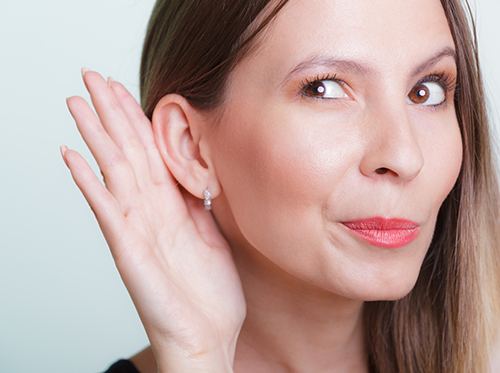April 10th, 2018

Incognito™ lingual braces offer the effectiveness of traditional braces minus the look of a mouth full of metal. They’re placed on the back of your teeth and won’t be visible to others unless you have widely spaced teeth. Dr. Douglas and Larry Harte would love to help you determine if this would be a good treatment option for you.
Benefits of Incognito Lingual Braces
For many patients, the biggest benefit of Incognito lingual braces is that they are rarely perceived by anyone. Patients are able to talk and smile without feeling self-conscious about wearing braces.
Another perk is that they are just as effective as standard braces. Patients enjoy the pleasing aesthetic aspect without compromising on time or results! Lingual braces are also a great option for patients who have plastic sensitivities or can’t wear other types of clear braces.
Who can get lingual braces?
Although many patients qualify for lingual braces, not everyone is a good candidate. The best candidates are teenagers and adults with normal-sized teeth and no bite issues. Children often have smaller teeth, so lingual braces may not be suitable.
If you’re thinking about correcting your smile but don’t want traditional braces, talk to Dr. Douglas and Larry Harte or visit our Sparta or Livingston, NJ office today. We can determine whether lingual braces are the right choice for you, so you can have the smile you’ve always wanted!
April 3rd, 2018

Whether you’re heading out for a day with friends or running from classroom to volleyball practice, you don’t always have the luxury of taking care of your braces or aligners in the comfort of your home. But don’t stress! Here are some suggestions for handy items you can take with you to handle most of the dental situations that might come up.
Basic Care Kit
- Travel Toothbrush—the perfect size for quick cleanings after a meal on the go. You might want to bring a travel size tube of toothpaste as well.
- Dental Floss, Threader, and Dental Picks—you don’t want something stuck in your teeth or braces through three hours of play rehearsal.
- Water Bottle—if you don’t have time to brush, a good rinse will help keep teeth and appliances clean.
- Small Mirror—to make sure your smile is picture perfect after eating.
- Our office phone number—just in case. If something happens to your braces or aligners, or if you suffer a dental emergency, call our Sparta or Livingston, NJ office immediately.
For Braces
- Orthodontic Wax—if one of your brackets is irritating your mouth, you’ll be ready.
- Braces-Friendly Snacks—soft, healthy foods that will help keep your energy up while keeping your braces intact.
For Aligners or a Retainer
- Your case! If you need to take your aligners or retainer out, use your case to protect them and keep them from getting lost. You have better things to do after lunch than sifting through a garbage can full of used napkins. Much better things.
All of these items can fit easily in a case or bag in your glove compartment, locker, or backpack. Want more tips? Talk to Dr. Douglas and Larry Harte and our team on your next visit, and let’s work together to make caring for your orthodontic appliances a quick and convenient addition to your busy schedule!
March 27th, 2018

We know that being a teen is hard, and we know that adding braces to the mix can often elicit a less-than-enthusiastic response. Luckily, teens can now have straighter teeth without the hassle, discomfort, and embarrassment of metal braces!
Dr. Douglas and Larry Harte proudly offer Invisalign Teen clear aligners to our adolescent patients.
One of the main benefits of Invisalign Teen aligners is that they are virtually invisible. They are also removable, which means teen patients are free to eat anything they choose. The aligners are also easily replaceable, should they ever get lost! The best part? They make it easy to keep up with a healthy brushing and flossing routine.
The aligners are made from a lightweight, plastic material that fits precisely on the teeth. Invisalign Teen treatment has become a popular treatment here at Sparta or Livingston, NJ because it helps our younger patients achieve a straight, beautiful smile without undergoing the dreaded metal-mouth.
For more information on Invisalign Teen clear aligners, please feel free to give us a call at our Dr. Douglas and Larry Harte office today!
March 20th, 2018

Your opinions matter to Dr. Douglas and Larry Harte and our team! Our blog is meant to be an educational channel, but we always want to know what things you’re interested in learning more about. After all, our blog is here for you to enjoy!
We’d like to encourage you to send us any ideas about what you want to see more of. No idea is too small! Whether it involves a specific treatment or advice on what kind of toothpaste you should use, we’d love to hear from you about it.
To share your thoughts with us, simply leave your comments below or on our Facebook page! You can also fill out a comment card the next time you visit our Sparta or Livingston, NJ office!






